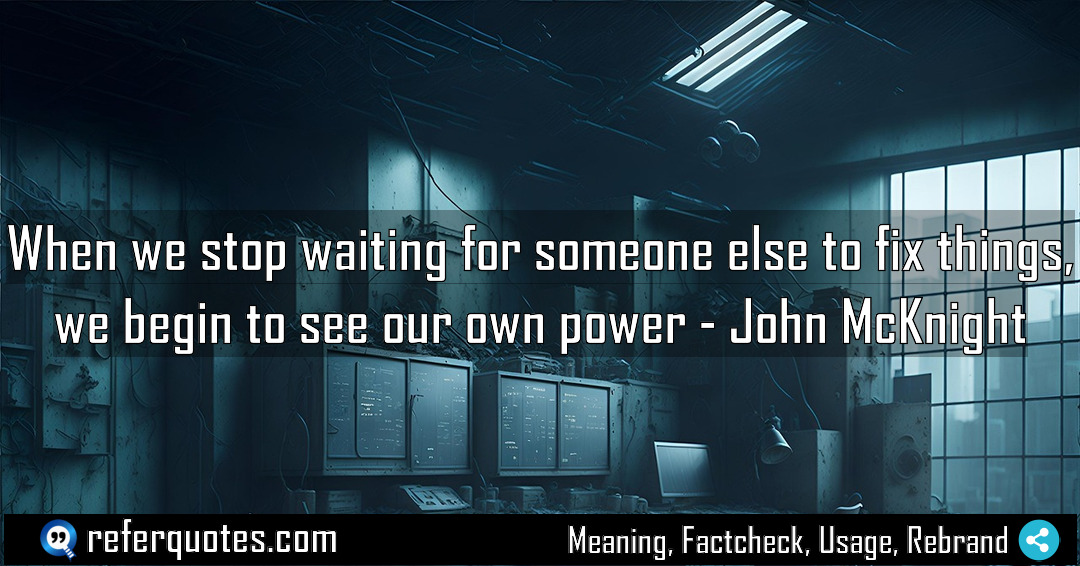When we stop waiting for someone else to fix things, we unlock a profound shift in perspective. It’s about realizing that the real power to create change has been within us all along, right in our own families and neighborhoods.
Share Image Quote:Table of Contents
Meaning
The core message here is a radical transfer of agency. It’s about moving from a mindset of passive consumption—waiting for a hero—to one of active creation, where we are the heroes we’ve been waiting for.
Explanation
Let me break this down. For years, I’ve seen this in communities. There’s this… collective hypnosis, right? We’re trained to look for external saviors—a new government program, a non-profit, a charismatic leader. But that waiting? It’s a trap. It disconnects us from our own capabilities. The moment we truly internalize that we are the ones we’ve been waiting for, everything changes. We start seeing the skills of our neighbors, the untapped potential in our own backyards. It’s not about grand gestures; it’s about recognizing that small, collective actions are the true engine of lasting change. It’s a shift from a narrative of deficiency to one of absolute abundance.
Quote Summary
| Context | Attributes |
|---|---|
| Original Language | English (3670) |
| Category | Personal Development (698) |
| Topics | change (101), empowerment (22), initiative (20) |
| Literary Style | conversational (15), direct (414) |
| Emotion / Mood | energetic (79), motivating (311) |
| Overall Quote Score | 80 (256) |
Origin & Factcheck
This gem comes straight from John McKnight and Peter Block’s 2010 book, The Abundant Community: Awakening the Power of Families and Neighborhoods. You’ll sometimes see the sentiment floating around unattributed or misattributed to activist circles, but the precise phrasing is theirs, born from decades of their work in community building, primarily in the United States.
Attribution Summary
| Context | Attributes |
|---|---|
| Author | John McKnight (51) |
| Source Type | Book (4032) |
| Source/Book Name | The Abundant Community: Awakening the Power of Families and Neighborhoods (51) |
| Origin Timeperiod | 21st Century (1891) |
| Original Language | English (3670) |
| Authenticity | Verified (4032) |
Author Bio
John McKnight, Professor Emeritus at Northwestern University had spent decades of his life helping people rediscover the power of relationships. Being, co-founder of the ABCD Institute, his core idea revolves around communities that grows by identifying and connecting their assets. You’ll find the John McKnight book list here which are anchored by Building Communities from the Inside Out, The Careless Society, The Abundant Community, and The Connected Community.
| Official Website
Where is this quotation located?
| Quotation | When we stop waiting for someone else to fix things, we begin to see our own power |
| Book Details | Publication Year/Date: 2010; ISBN/Unique Identifier: 9781605095844; Last edition: 2012; Number of pages: 192. |
| Where is it? | Chapter: Taking Responsibility, Approximate page from 2012 edition: 65 |
